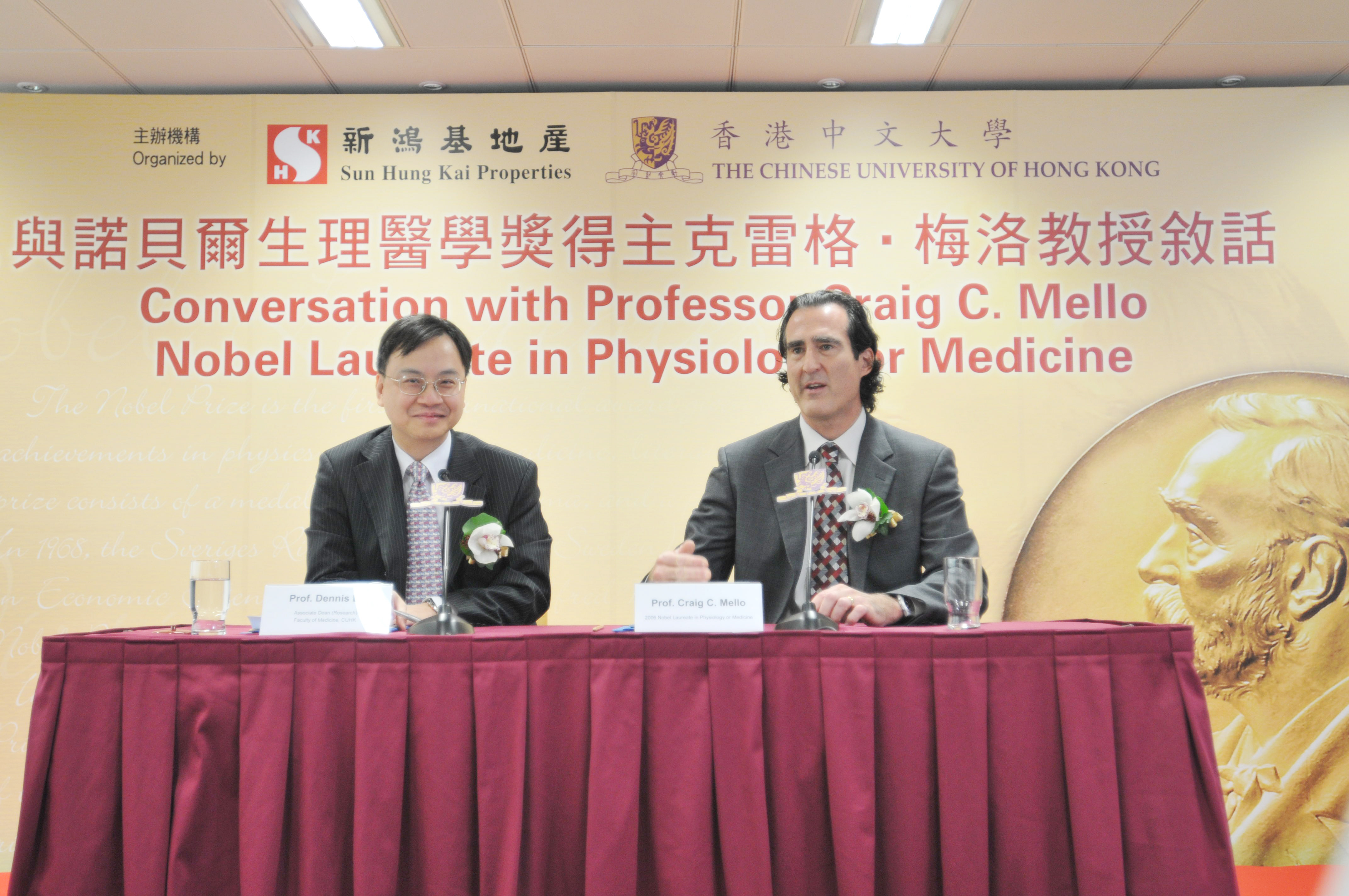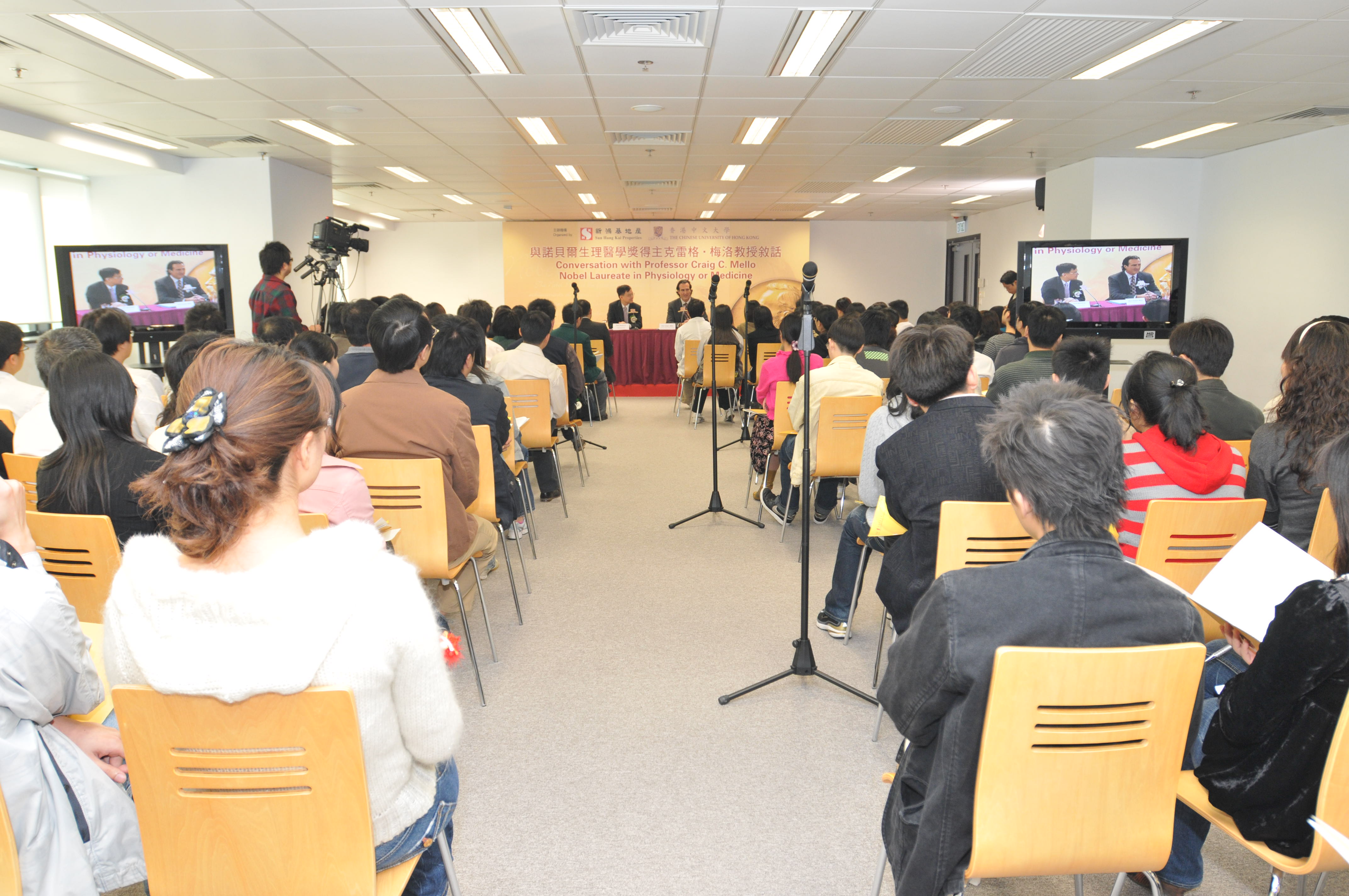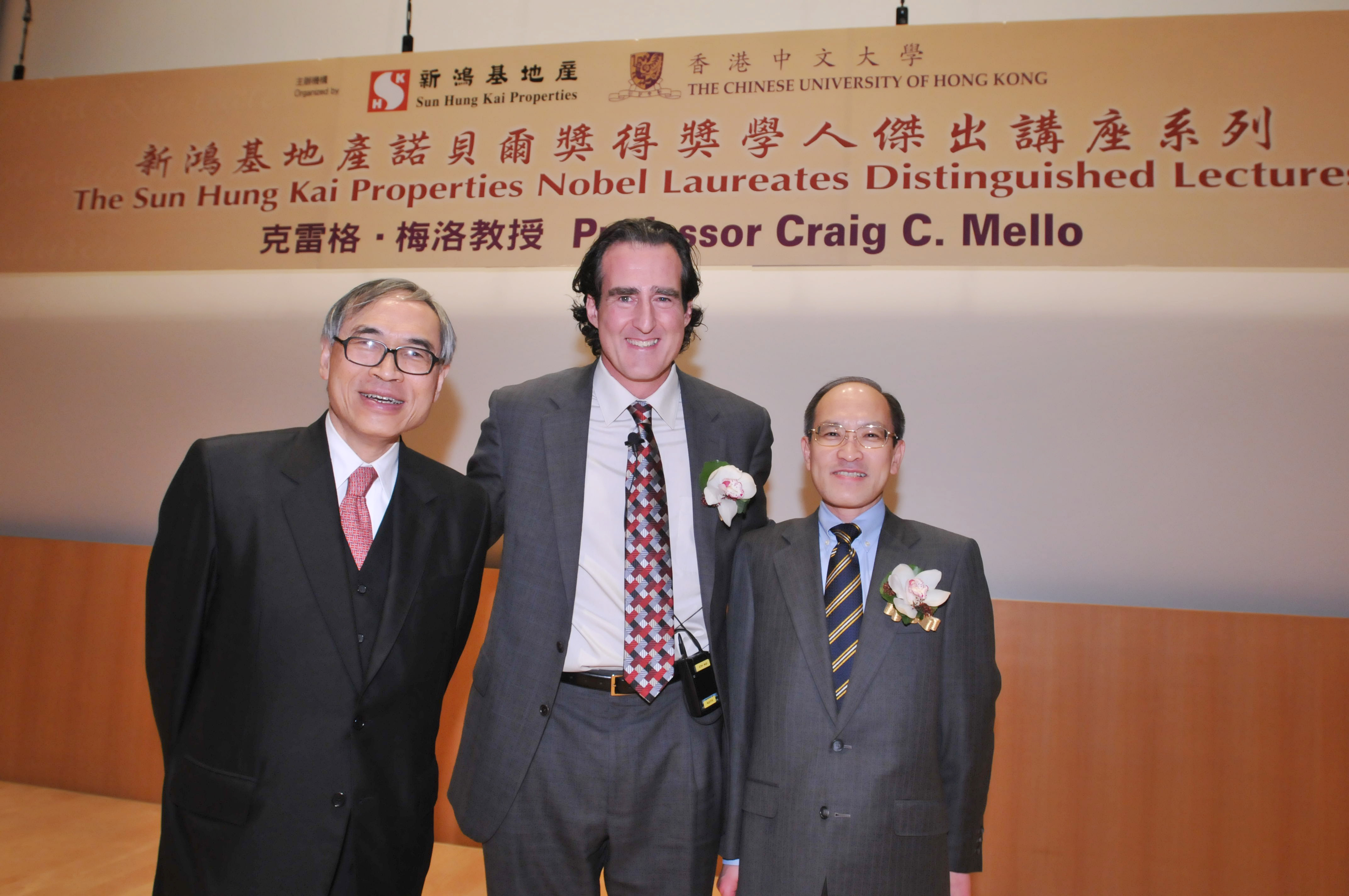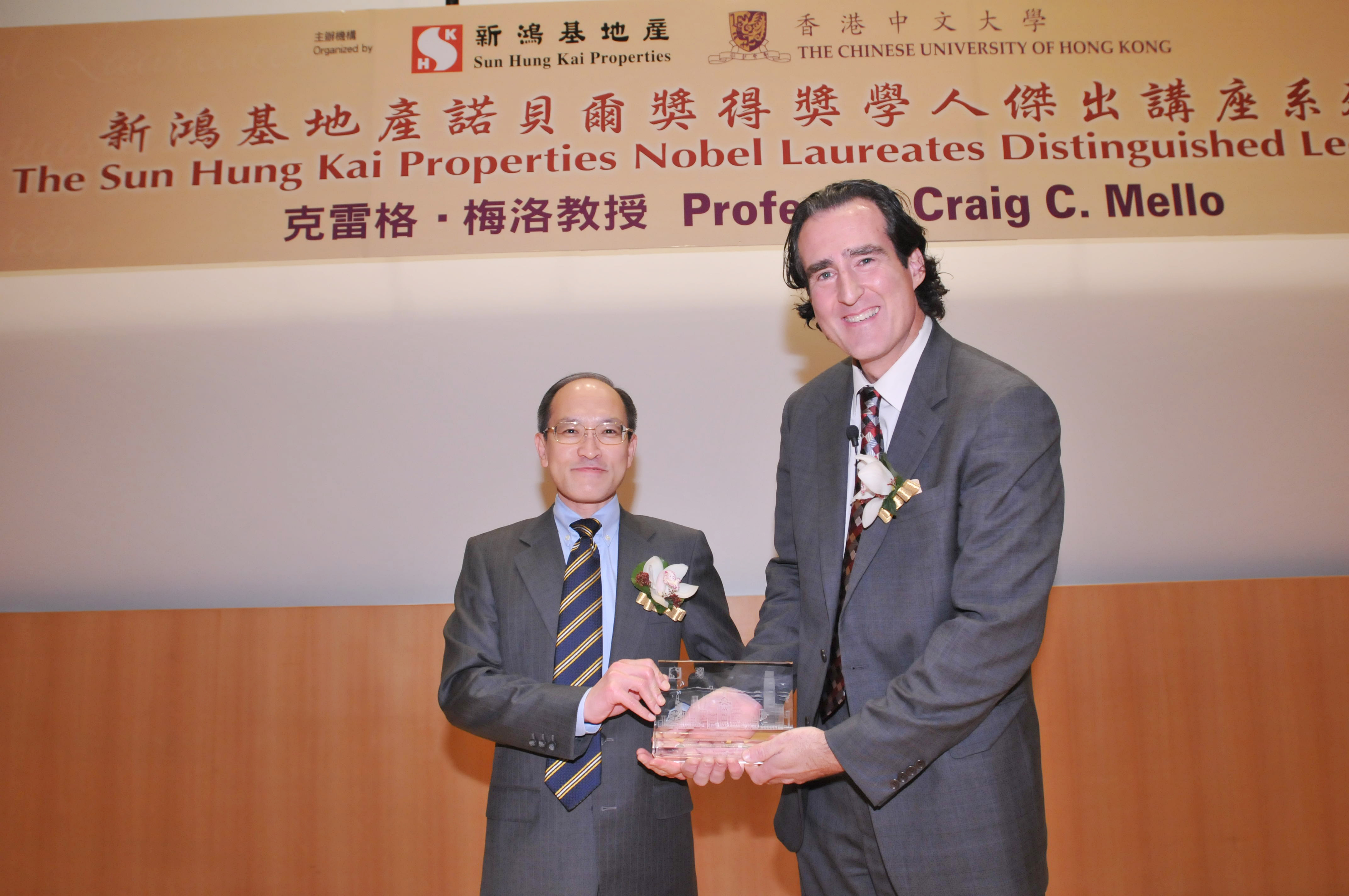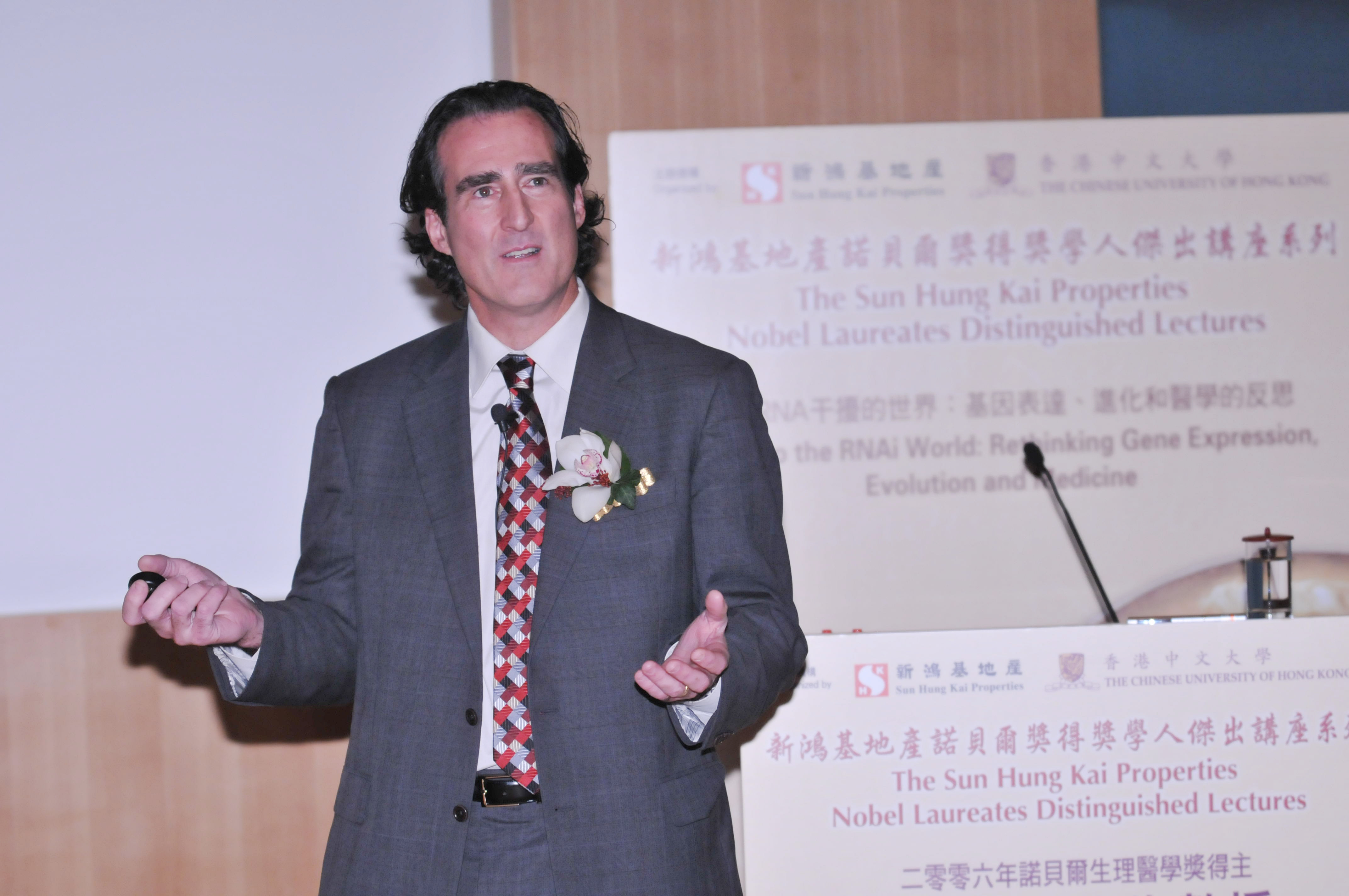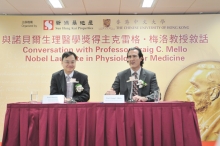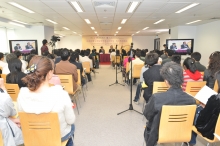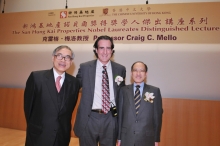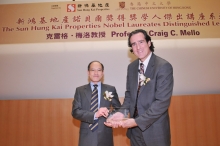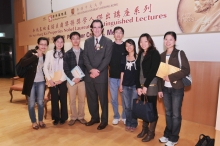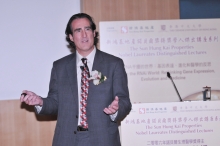CUHK
News Centre
SHKP and CUHK Present Nobel Lecture on Rethinking Gene Expression, Evolution and Medicine
Sun Hung Kai Properties (SHKP) and The Chinese University of Hong Kong (CUHK) presented the tenth instalment of their widely acclaimed Nobel Laureates Distinguished Lectures today (December 4) with 2006 laureate in physiology or medicine Professor Craig C Mello speaking on ‘Return to the RNAi World: Rethinking Gene Expression, Evolution and Medicine’. About 400 guests attended the lecture, including academics, students, health-care practitioners and members of the public. Professor Mello also spoke in another session with about 100 secondary school and university students.
SHKP Vice Chairman and Managing Director Raymond Kwok said: “Sun Hung Kai Properties encourages education and continual learning. We believe that our Nobel lectures are an important vehicle for Hong Kong to host noted international scholars sharing wisdom and insight. We hope that people gain a broader perspective and the knowledge to make a positive impact on the territory’s future.”
“I would like to reiterate our grateful thanks to Sun Hung Kai Properties, represented here by Executive Director, Mr. Michael Wong today, for their most generous sponsorship for this project. This lecture series would not have been possible without their unwavering support. We sincerely hope that this partnership will last for many, many more years to come, so that we can bring many, many more Nobel laureates to Hong Kong,” said CUHK Vice Chancellor Lawrence J. Lau.
The lecture was broadcast live to local universities and the CUHK Tung Wah Group of Hospitals Community College, as well as Peking, Fudan, Shanghai Jiao Tong, Tsinghua, Zhejiang, Nanjing and Sun Yat-sen Universities on the mainland. Teachers and students from universities and secondary schools can benefit from Professor Mello’s scholarship through school intranets and the Hong Kong Education City web site.
Professor Mello was investigating the genetic workings of the microscopic worm, C. elegans with his colleague Professor Andrew Fire of the Carnegie Institution of Washington when they discovered RNAi: a natural but previously unrecognized process by which a certain form of RNA can be manipulated to silence — or interfere with — the expression of a selected gene. The discovery, published in the journal Nature in 1998, has had two extraordinary impacts on biological science.
One is as a research tool: RNAi is now the state-of-the-art method by which scientists can knock out the expression of specific genes in cells, to define the biological functions of those genes. But just as important has been the finding that RNA interference is a normal process of genetic regulation that takes place during development. Thus, RNAi has provided not only a powerful research tool for experimentally knocking out the expression of specific genes, but has opened a completely new and totally unanticipated window on developmental gene regulation. RNAi is now showing promise in the clinic as a new class of gene-specific therapeutics. The team has won a dozen of prestigious awards around the globe for their outstanding discovery.
Given the fundamental and broad-based impact of RNAi, a patent, ‘Genetic Inhibition by Double-Stranded RNA’, (US Patent 6506559 B1) issued to the University of Massachusetts Medical School (UMMS) and the Carnegie Institution, is expected to have far-reaching licensing potential both in the laboratory and in drug development. Because both institutions were eager to bring RNAi to bear as broadly as possible to hasten genetic research, they developed a licensing policy by which companies can readily obtain, for a basic fee, a wide-ranging and non-exclusive license for scientists to use the technology for research. A significant number of companies have already licensed the invention and additional companies have expressed interest.
Professor Mello is the Blais University Chair in Molecular Medicine at UMMS. He holds his BS in biochemistry from Brown University and his PhD in Cellular and Developmental Biology from Harvard University. He was a postdoctoral fellow at the Fred Hutchinson Cancer Research Center before joining UMMS in 1995. He is also a 1995 Pew Scholar in the Biomedical Sciences.
The Nobel Laureates Distinguished Lectures series was initiated in 2004 to allow Nobel laureates speak to a broad cross-section of the community and promote discovery and the dissemination of knowledge and contributions to humanity. The latest lecture brings to 16 the number of Nobel laureates or renowned scholars who have taken part in the series.
Biography of the speaker can be downloaded from: http://www.cuhk.edu.hk/nobellectures/
From left: Prof. Lawrence J. Lau, Vice-Chancellor of CUHK, Prof. Craig C. Mello and Mr. Michael Wong, Executive Director of SHKP


